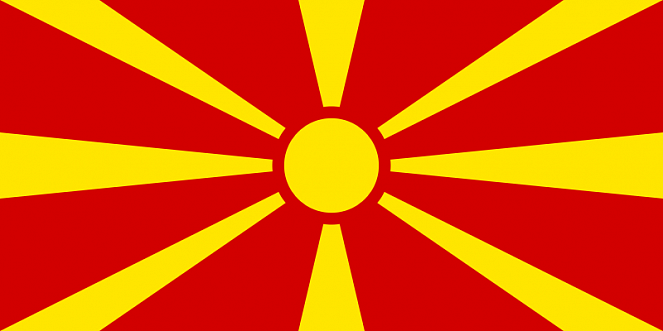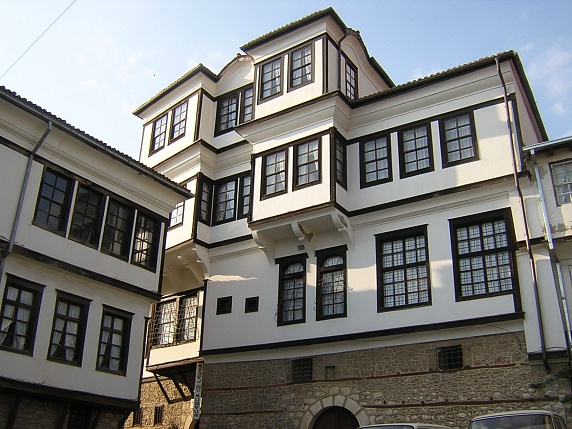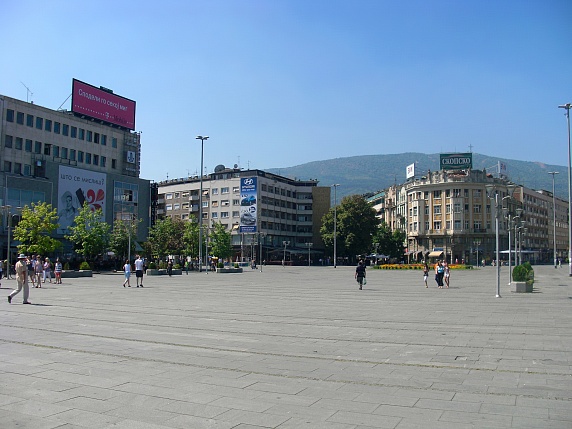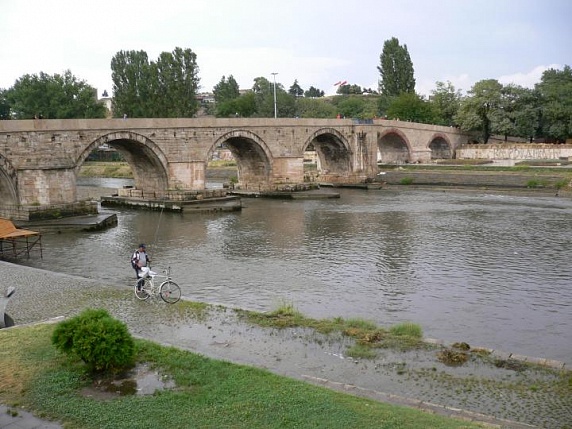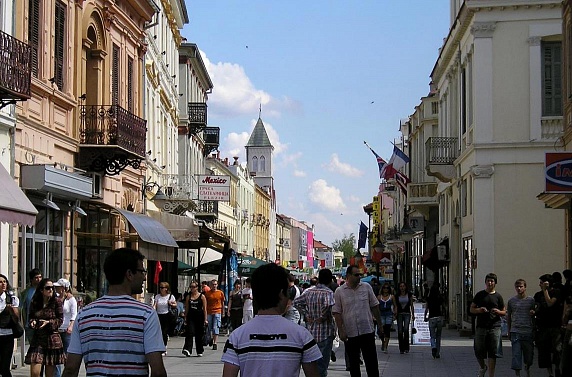 Республика Северная Македония
Республика Северная Македония
Press release on Foreign Minister Sergey Lavrov’s participation in the upcoming OSCE Ministerial Council meeting
On November 30 and December 1, the OSCE Ministerial Council will meet in Skopje, North Macedonia, for its 30th regular meeting, which Foreign Minister Sergey Lavrov plans to attend.
The OSCE Ministerial Council is the second top governing body, which convenes in years when summit meetings are not held. The most recent OSCE summit was held in 2010 in Astana. The Council’s meetings usually take place in the country holding the rotating OSCE chairmanship. In 2023, that position is held by the Republic of North Macedonia. The OSCE foreign ministers gather to discuss the implementation of decisions and to coordinate mid-term goals. The Council also serves as a platform for the political dialogue among member states.
The main theme at the upcoming meeting will be the crisis situation within the OSCE. We hope to be able to discuss all the outstanding issues and to address a number of administrative and personnel issues essential for the organisation’s normal functioning next year. Decisions within the OSCE are made based on consensus.
The current profound crisis within the OSCE is the result of destructive actions by certain Western countries, which are using the organisation in their own interests and violating its fundamental principles. The OSCE agenda has been focused on Ukraine since 2022, with annual consensus events being replaced by uncoordinated formats in all three areas of OSCE operation: the politico-military, the economic and environmental, and the human dimensions.
Russian delegates at OSCE governing body meetings consistently draw attention to the most pressing issues within the organisation's zone of responsibility, such as combating terrorism and drug trafficking, safeguarding traditional values, countering neo-Nazism, preventing the distortion of history, and addressing Christianophobia and Islamophobia. Russia consistently urges member states to unite in these areas.
The Russian delegation to the OSCE regularly updates the delegations of other member states on progress towards the objectives of the special military operation and provides objective information regarding war crimes committed by the Kiev regime, attacks on the Ukrainian Orthodox Church, the extensive campaign in Ukraine to "cancel" the Russian language and culture, and the persecution of Russian media. We also publicly disclose information about the reckless policy of the Western alliance in perpetuating the conflict in Ukraine through the provision of NATO weapons to the Ukrainian armed forces.
The conceptual foundations of building an equal and indivisible security were enshrined in the primary instruments of the CSCE/OSCE: the Charter of Paris for a New Europe (1990), the Charter for European Security (1999) and the Astana Declaration (2010). A series of agreements was developed on a broad range of military and political issues that are included in the first-basket competences. The Treaty on Conventional Armed Forces in Europe (CFE) was signed in 1990 to eliminate military formations from the Cold War era. Continuous improvements were made to the Vienna Document on confidence and security-building measures. The Treaty on Open Skies was signed in 1992, and the Forum for Security Cooperation was established the same year. The forum participants approved an entire range of foundational documents: the Code of Conduct on Politico-Military Aspects of Security; the principles governing non-proliferation and transfer of conventional weapons; the Global Exchange of Military Information; the Stabilising Measures for Localised Crisis Situations. The Document on Small Arms and Light Weapons and the Document on Stockpiles of Conventional Ammunition were approved in 2000. Currently, however, these documents have little effect.
Over time, more issues have arisen in relation to implementing these agreements, largely due to the destructive stance of the NATO member states. One example is the situation with the CFE. After Russia completed its withdrawal from the treaty on November 7, there have been attempts to accuse the Russian side of undermining Europe’s control over arms. However, it is important to note that Russia ratified the Adapted CFE Treaty in 2004, while the NATO countries blocked its implementation and ignored Russia’s specific proposals on restoring the viability of the conventional weapons control regime in Europe. Considering NATO’s direct responsibility for provoking the conflict in Ukraine as well as allowing Finland to join the alliance and considering an accession application from Sweden, maintaining the CFE even nominally became unacceptable from the perspective of Russia’s basic security interests.
The OSCE’s economic and environmental activities have also become politicised. The constructive work on economic and environmental issues has been overshadowed by empty slogans and unrelated speculations. While the European Union is compelled to prioritise the economic interests of its American partners over its own under pressure from the United States, the space for constructive discussion on second-dimension topics within the OSCE is steadily shrinking.
The Organisation’s work in the humanitarian dimension has been complicated by thematic and geographical imbalances. There are serious complaints about the competent executive bodies of the OSCE (the Office for Democratic Institutions and Human Rights (ODIHR), the Representative on Freedom of the Media and the High Commissioner on National Minorities). These bodies have shown political bias on multiple occasions in the past years, especially the ODIHR, which conducts a highly biased monitoring of the human rights situation in countries to the east of Vienna and issues opinions on election results before elections take place.
The incumbent Representative on Freedom of the Media has openly taken a politically biased stance, thus discrediting the work of this OSCE institution. This executive body deliberately ignores grave violations of the rights of Russian and Russian-speaking journalists and media outlets, complying exclusively with pro-Western principles on media issues.
On the sidelines of the OSCE Ministerial Council Meeting in Skopje, the head of the Russian delegation plans to hold bilateral talks with representatives from OSCE member states and senior OSCE officials.
